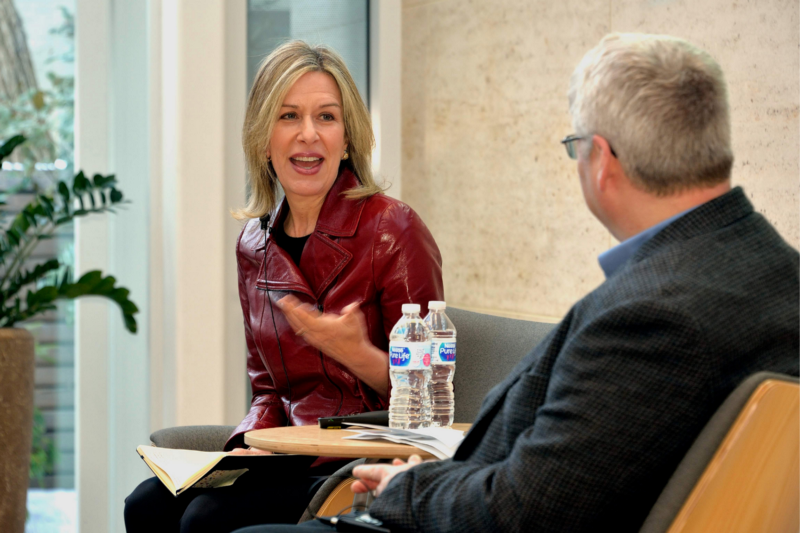REACT Conference Brings Climate Change Conversation to Campus
Perry World House Fellow and former U.S. Deputy Secretary of Energy Elizabeth Sherwood-Randall urged scientists to not self-censor as policymakers consider what to do about a global crisis.

Many researchers working on climate change rarely speak to the policymakers responsible for crafting a strategy for combating the global problem, even as some politicians express skepticism about the basic science that proves it’s happening.
How can scientists bridge that divide? Elizabeth Sherwood-Randall, a Global Order Distinguished Visiting Fellow at Penn’s Perry World House and a former deputy secretary at the U.S. Department of Energy, has a simple idea. Researchers, she said, need to talk about what they do — and explain why it’s important — at every opportunity, translating their work for non-scientists.
Speaking at Perry World House, Sherwood-Randall urged a group of students and faculty to get into the arena and fight.
“You can’t stay in your lab quietly if you feel this sense of urgency,” she said. “I think it’s about being multi-dimensional and looking for opportunities to participate in the debate.”
Given the current administration’s approach, Sherwood-Randall sees universities as crucial players in climate change research, along with U.S. national laboratories and the private sector. Together, they can make change from the bottom up, since it’s not coming from the top down, she said.
In response to a question about how to work with those in power who don’t believe in climate science, she argued that scientists need to push back against being censored or silenced when they have information.
“In these times, it’s actually an imperative that we ensure scientific integrity…We need to advocate for the hearing of the truth,” she said.
In a public conversation moderated by PIK Professor Christopher Murray, Sherwood-Randall addressed students and researchers from the U.S., France, and South Korea as part of the annual meeting of Research and Education in Active Coatings Technologies for the Human Habitat (REACT), a project funded by the National Science Foundationand Penn’s School of Engineering and Applied Science.
REACT is focused on using nanomaterials and polymers to invent cutting-edge ways to deal with water purification and management, the spread of infections, and the generation and storage of solar energy — the three “acts” in the project’s name.
The project includes researchers and students at Penn, Alabama State University, Bryn Mawr College, and Villanova University in the U.S., and the six institutions within the Grenoble Innovation for Advanced New Technologies, or GIANT, in France. Solvay, a materials and chemical company, is the industrial partner.
Sherwood-Randall’s remarks closed the meeting, which focused on the intersection of policy, science, and technology. Mark Alan Hughes, a professor at Penn’s School of Design and the faculty director of the Kleinman Center for Energy Policy, opened with a broad perspective on the state of climate change.
Continue reading at Penn Today.
